
Find Help
More Items From Ergsy search
-

What dietary changes can help manage Crohn's disease?
Relevance: 100%
-
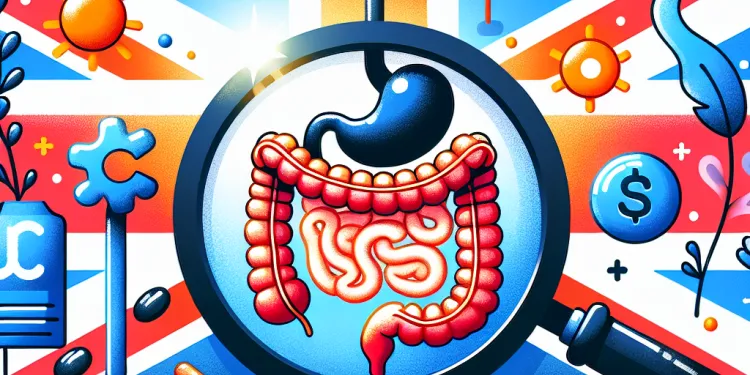
Is there a cure for Crohn's disease?
Relevance: 80%
-

What is Crohn’s disease and how is it treated?
Relevance: 76%
-

What is the best diet for Crohn’s disease?
Relevance: 76%
-
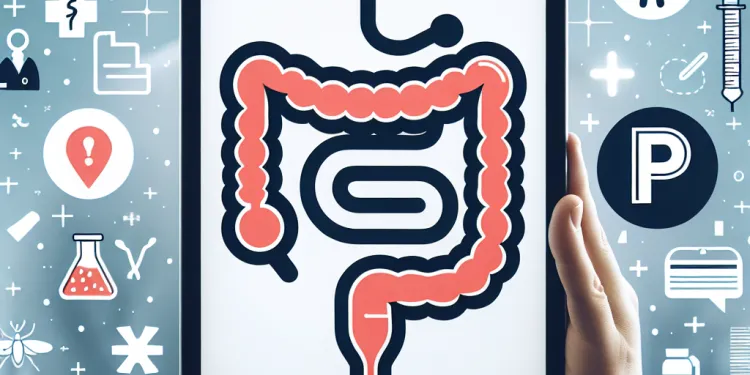
Is surgery necessary for Crohn's disease?
Relevance: 76%
-

Is Crohn's disease contagious?
Relevance: 74%
-

What support is available for people with Crohn's disease in the UK?
Relevance: 72%
-

What causes Crohn's disease?
Relevance: 71%
-
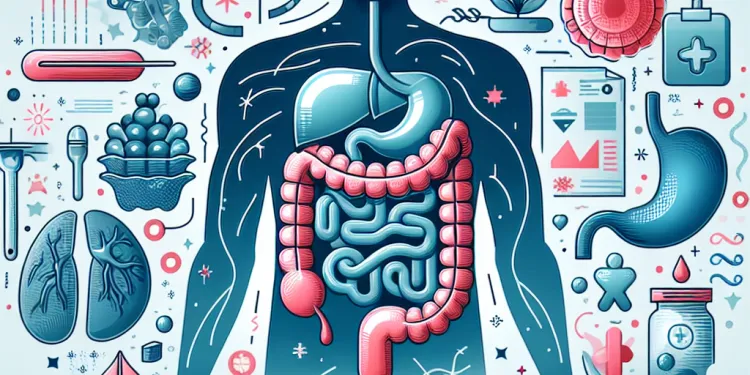
Are there any complications associated with Crohn's disease?
Relevance: 70%
-
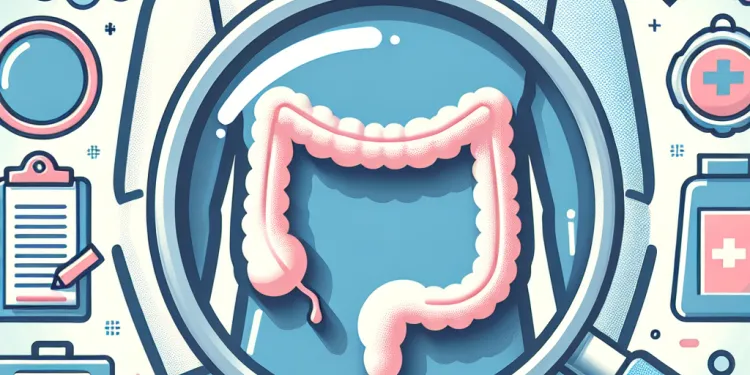
How is Crohn's disease diagnosed?
Relevance: 69%
-

Who is at risk of developing Crohn's disease?
Relevance: 69%
-

What treatments are available for Crohn's disease?
Relevance: 68%
-

Can children develop Crohn's disease?
Relevance: 67%
-

What are the common symptoms of Crohn's disease?
Relevance: 65%
-

Can stress make Crohn's disease worse?
Relevance: 64%
-
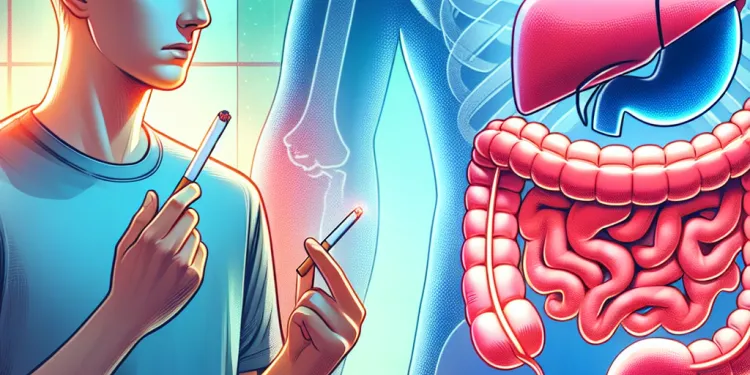
How does smoking affect Crohn's disease?
Relevance: 64%
-

Infliximab infusion (Remicade) for Crohns Disease at Addenbrookes NHS hospital
Relevance: 53%
-

What is dietary fiber?
Relevance: 45%
-

What is dietary fiber?
Relevance: 41%
-
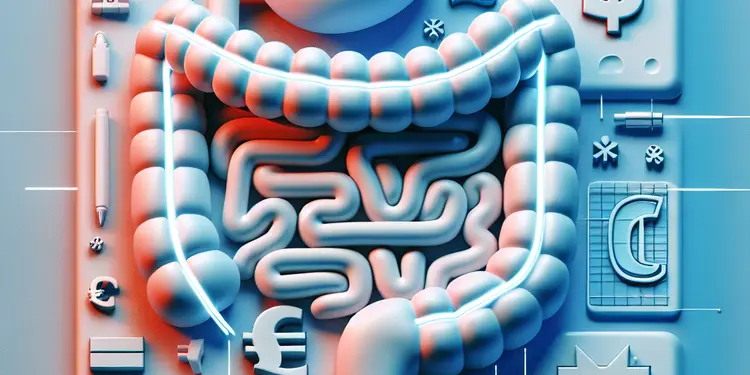
Are there specific gut-related diseases that become more common with age?
Relevance: 37%
-

What are the types of dietary fiber?
Relevance: 37%
-

What happens if I have special dietary needs?
Relevance: 37%
-

How are special dietary requirements catered for in school meals?
Relevance: 36%
-

Are dietary needs accommodated in care homes?
Relevance: 34%
-

Can lifestyle changes impact motor neurone disease progression?
Relevance: 34%
-

Can lifestyle changes help manage Huntington's disease?
Relevance: 33%
-

Can lifestyle changes reduce the need for medication for heart disease prevention?
Relevance: 32%
-

Does Baxdrostat interact with dietary supplements?
Relevance: 31%
-

Are there any dietary factors that influence GLP-1 secretion?
Relevance: 31%
-

Are there any dietary restrictions while taking Abiraterone?
Relevance: 30%
-

Are there dietary recommendations while taking Wegovy?
Relevance: 30%
-

Are there any dietary restrictions before a C-section?
Relevance: 29%
-

How do climate changes affect mosquito-borne diseases in the UK?
Relevance: 29%
-

Liver disease | NHS
Relevance: 28%
-
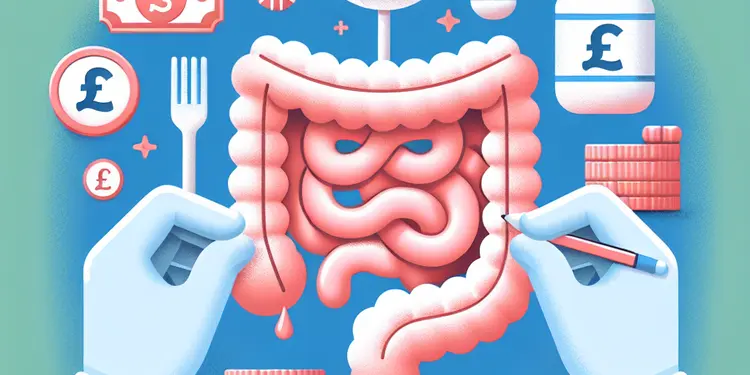
Are there any dietary restrictions before taking a fecal occult blood test?
Relevance: 28%
-

Coeliac Disease: Session 1: What is Coeliac Disease?
Relevance: 28%
-

What changes occur in the gut microbiome as we age?
Relevance: 28%
-

Living with early stage kidney disease
Relevance: 28%
-

Living Well with Coeliac Disease
Relevance: 27%
-

Coeliac disease
Relevance: 27%
What Dietary Changes Can Help Manage Crohn's Disease?
Understanding Crohn's Disease
Crohn's disease is a chronic inflammatory condition of the gastrointestinal tract, affecting many individuals in the United Kingdom. While the exact cause is unknown, managing symptoms often requires dietary adjustments. Though there is no one-size-fits-all diet, certain changes can significantly improve quality of life for those with Crohn's disease.
Low-Residue Diets
A low-residue diet may be recommended during flare-ups to help reduce bowel movements and lessen symptoms. This diet involves consuming foods that are easy to digest and low in fibre, such as white bread, pasta, and cooked fruits and vegetables without skins. It's essential to avoid seeds, nuts, and raw vegetables during active phases of the disease.
Include Omega-3 Fatty Acids
Omega-3 fatty acids, commonly found in oily fish like salmon and mackerel, have anti-inflammatory properties. Including more of these in your diet could help reduce inflammation associated with Crohn's disease. Supplements are also available, although it's advisable to consult with a healthcare professional before starting any new supplement regimen.
Avoid Trigger Foods
Identifying and avoiding trigger foods is crucial for managing Crohn's disease. Common triggers include dairy products, spicy foods, alcohol, and caffeine. Keeping a food diary can help track which foods worsen symptoms, enabling more personalized dietary adjustments.
Stay Hydrated
Staying well-hydrated is vital, especially during flare-ups when the risk of dehydration is higher. Drinking plenty of water and avoiding caffeinated and sugary drinks is recommended. In some cases, oral rehydration solutions may be beneficial to replenish lost electrolytes.
Consider a Nutritional Supplement
Malnutrition is a concern for individuals with Crohn's disease due to malabsorption of nutrients. Nutritional supplements might be necessary to ensure adequate intake of essential vitamins and minerals. Consultation with a dietitian can provide guidance on suitable options.
Personalized Dietary Plan
The best dietary approach for managing Crohn's disease is one that is tailored to individual needs. Collaborating with a healthcare provider or nutritionist familiar with Crohn's disease can help create a personalized plan that includes a balanced mix of protein, carbohydrates, and healthy fats, all while minimizing discomfort and promoting gut health.
Dietary Changes to Manage Crohn's Disease
Crohn's disease is a chronic inflammatory condition of the gastrointestinal tract that can cause a variety of symptoms such as abdominal pain, diarrhea, and malnutrition. While there is no cure, certain dietary changes can help manage symptoms and promote remission. Here are some key dietary strategies that individuals in the UK can consider when managing Crohn's disease.
Emphasize a Balanced Diet
Ensuring a well-balanced diet is crucial for those with Crohn's disease. It is important to get a diversity of nutrients to support overall health and healing. Incorporating a variety of fruits, vegetables, lean proteins, and whole grains can provide the vitamins and minerals needed to reduce inflammation and boost immunity. However, individual tolerances vary, so foods should be chosen based on how they affect one's symptoms.
Identify and Avoid Trigger Foods
Identifying foods that trigger symptoms is a crucial step in managing Crohn's disease. Common trigger foods can include high-fat foods, dairy products (if lactose intolerant), and certain high-fiber foods. Keeping a food diary can be helpful to pinpoint foods that may exacerbate symptoms, allowing individuals to eliminate or limit these from their diet.
Consider a Low-Residue Diet During Flares
During active flares, a low-residue diet can help reduce the frequency and volume of stools by limiting dietary fiber. This involves avoiding foods like nuts, seeds, popcorn, and raw fruits and vegetables. Instead, focus on well-cooked vegetables, refined cereals, and white bread that are easier on the digestive system.
Stay Hydrated
Hydration is especially important for Crohn's sufferers, as diarrhea and increased bowel movements can lead to fluid loss. Drinking plenty of water, herbal teas, and electrolyte drinks can help maintain fluid balance. It is advisable to limit caffeinated and alcoholic beverages which can further irritate the digestive lining.
Consider Nutritional Supplements
Some individuals with Crohn's disease may require nutritional supplements to compensate for deficiencies, especially if their condition limits the absorption of nutrients. Supplements such as vitamins B12, D, iron, and calcium can be helpful but should be taken under medical supervision to ensure appropriate dosing and efficacy.
Always consult with a healthcare provider or a dietitian specialized in gastrointestinal health before making significant dietary changes. They can help create a personalised diet plan that addresses individual needs and assists in managing Crohn's disease effectively.
What Food Changes Can Help with Crohn's Disease?
Understanding Crohn's Disease
Crohn's disease is a long-lasting problem in the tummy and gut. It can make you feel unwell. Lots of people in the UK have it. We don't know exactly what causes it, but changing what you eat can help. There is no perfect diet for everyone, but some changes can make people with Crohn's feel better.
Low-Residue Diets
A low-residue diet might help when Crohn's gets worse. It can make your tummy feel better by giving you fewer bowel movements. This diet means eating foods that are easy to digest, like white bread, pasta, and cooked fruits and veggies without skins. Try to avoid seeds, nuts, and raw veggies during a flare-up.
Add Omega-3 Fatty Acids
Omega-3 fatty acids are good for you. They help with swelling and are found in fish like salmon and mackerel. Eating more of these fish might help with Crohn's. You can also take omega-3 supplements, but talk to a doctor before trying new supplements.
Avoid Foods That Cause Problems
Some foods can make Crohn's symptoms worse. Common ones are milk products, spicy foods, alcohol, and caffeine. Keeping a food diary can help you figure out which foods are a problem for you. Avoiding these foods can help you feel better.
Drink Plenty of Water
It's important to drink lots of water, especially when Crohn's is acting up. Water helps keep you from getting dehydrated. Avoid drinks with caffeine or a lot of sugar. Sometimes, special drinks with extra salts might help if you're losing a lot of fluids.
Think About Nutritional Supplements
People with Crohn's might not get all the vitamins and minerals they need from food because their body doesn't absorb them well. Supplements can help make sure you get enough nutrients. A dietitian can tell you which supplements are good for you.
Make a Plan Just for You
The best way to eat with Crohn's is to have a diet plan that fits you. Work with a doctor or nutritionist who knows about Crohn's to make a plan. Your plan should have protein, carbohydrates, and healthy fats. It should help keep your tummy comfortable and healthy.
Diet Changes to Help Crohn's Disease
Crohn's disease affects the stomach and intestines. It can make you feel pain in your tummy, have diarrhea, and feel weak from not absorbing food well. There is no cure, but changing what you eat can help you feel better. Here are some tips that people in the UK can follow to manage Crohn's.
Eat a Balanced Diet
Eating a variety of healthy foods is important if you have Crohn's disease. This means eating different fruits, vegetables, lean meats, and grains like rice or oats. These foods give you the vitamins and minerals you need to stay healthy. But remember, not everyone can eat the same foods. Choose foods that do not upset your tummy.
Find and Avoid Problem Foods
Some foods can make Crohn's symptoms worse. These might be fatty foods, milk products (if you can't handle lactose), or foods with a lot of fiber. To figure out which foods bother you, try keeping a diary of what you eat and how you feel. This can help you know which foods to avoid or eat less of.
Try a Soft Diet During Flare-Ups
When your symptoms get worse, eating foods that are low in fiber can help. This is called a low-residue diet. Avoid foods like nuts, seeds, popcorn, and raw fruits and vegetables. Instead, eat cooked vegetables, cereals, and white bread that are easier to digest.
Drink Plenty of Water
When you have Crohn's, it's easy to get dehydrated because of diarrhea. Drink lots of water, herbal teas, and drinks with electrolytes to stay hydrated. Try not to drink too much coffee or alcohol, as they can irritate your stomach.
Think About Taking Supplements
Sometimes, people with Crohn's might not get all the nutrients they need from food. You might need to take vitamins like B12, D, iron, or calcium. But talk to a doctor before taking any supplements to make sure you're getting the right amount.
Always talk with a doctor or a dietitian who knows about tummy health before changing your diet a lot. They can help you make a special diet plan just for you, to help manage your Crohn's disease better.
Frequently Asked Questions
What foods should I avoid if I have Crohn's disease?
It's recommended to avoid foods that can irritate the digestive tract, such as dairy products, high-fiber foods, and spicy foods.
Are there any dietary supplements that can help manage Crohn's disease?
Omega-3 fatty acids, probiotics, and specific multivitamins may help some people, but always consult with your healthcare provider before starting any supplements.
Can a specific diet cure Crohn's disease?
There is no diet that can cure Crohn's disease, but dietary changes can help manage symptoms and promote better overall health.
Is it beneficial to keep a food diary?
Yes, keeping a food diary can help identify foods that trigger symptoms and guide dietary changes to better manage Crohn's disease.
Should I increase my water intake?
Staying hydrated is important for managing Crohn's disease, especially during flare-ups where dehydration may be a risk.
Is it helpful to eat smaller, more frequent meals?
Yes, eating smaller, more frequent meals can help reduce the workload on the digestive system and manage symptoms more effectively.
What role do probiotics play in managing Crohn's disease?
Probiotics may help some individuals by supporting gut health, but their effectiveness can vary. Consult with a healthcare provider for personalized advice.
Can gluten affect Crohn's disease symptoms?
Some individuals with Crohn's disease might be sensitive to gluten, though it's not a common trigger. Monitoring and testing for gluten sensitivity can be helpful.
Are there any specific fruits and vegetables that are better tolerated?
Cooked fruits and vegetables may be easier to digest than raw ones. Discuss with a dietitian to identify which may be best for you.
What proteins are recommended for someone with Crohn's disease?
Lean proteins like chicken, turkey, and fish are often easier to digest and can be a good choice for individuals with Crohn's disease.
Is lactose intolerance common in people with Crohn's disease?
Lactose intolerance can be common in people with Crohn's disease; therefore, lactose-free or reduced-lactose products may be better tolerated.
How can fibre intake affect Crohn's disease?
While fibre is generally healthy, too much can worsen symptoms for some individuals with Crohn's. Finding a balance with the help of a healthcare professional is important.
What dietary approach can help during a flare-up?
During a flare-up, a low-residue or low-fibre diet may help reduce symptoms by minimizing stool bulk.
Is there a link between stress and diet management in Crohn's disease?
Stress doesn't directly affect diet, but it can exacerbate symptoms and affect appetite. Effective stress management strategies alongside dietary changes are beneficial.
Should I seek advice from a dietitian regarding my Crohn's disease diet?
Yes, consulting with a dietitian who specializes in digestive disorders can provide personalized recommendations and help develop an effective eating plan.
What foods should I stay away from if I have Crohn's disease?
If you have Crohn's disease, some foods might make you feel unwell. It's good to know which foods can cause problems.
Here are some foods that some people with Crohn's find hard to eat:
- Fried foods
- Popcorn
- Nuts and seeds
- Whole grains
- Spicy foods
- Raw fruits and vegetables
- Dairy products if you're lactose intolerant
Everyone is different, so some foods might be okay for you. Keep a food diary to see which foods upset your tummy. You can also talk to a dietitian or doctor for advice.
It's best not to eat foods that can upset your stomach. These include milk and cheese, foods with a lot of fiber, and spicy foods.
Can any vitamins or pills help with Crohn's disease?
Omega-3s, probiotics, and some multivitamins might help you feel better. It is important to talk to a doctor before taking any new pills or supplements.
Can food help fix Crohn's disease?
There is no magic food that can cure Crohn's disease. But eating the right foods can help you feel better.
Here are some tips to help:
- Eat small meals often.
- Drink lots of water.
- Avoid spicy and fatty foods.
Talk to a doctor or a dietitian. They can help you choose foods that are right for you.
Remember, everyone is different. What works for one person might not work for someone else.
A special diet can't fix Crohn's disease, but changing what you eat can help you feel better and stay healthy.
Is it helpful to write down what you eat?
Writing down what you eat can be a good idea. It helps you remember the food you eat every day. This can help you see if you are eating healthy food.
Here are some tips:
- Write down every meal and snack.
- Use a notebook or an app on your phone.
- Look at your list to see if you eat lots of fruits and vegetables.
Writing about your meals might help you make better choices with food. Give it a try!
Yes, writing down what you eat can help you see which foods make you feel bad. This can help you change what you eat to feel better if you have Crohn's disease.
Do I need to drink more water?
Drinking enough water is very important if you have Crohn's disease. This helps a lot, especially when you feel very sick and lose water from your body easily.
Is it good to eat small meals often?
Eating smaller meals more often can help some people feel better.
Here is why it might be good:
- It can give you more energy during the day.
- It might stop you from feeling too hungry.
- It can help keep your blood sugar levels steady.
If you want to try this, here are some tips:
- Plan what you will eat each day.
- Choose healthy snacks like fruit or nuts.
- Drink plenty of water.
Always listen to your body to see what works best for you.
Yes, eating smaller meals more often can help your stomach work better and stop tummy problems.
How can probiotics help with Crohn's disease?
Probiotics are tiny living things called good bacteria. They help keep the tummy and gut healthy. People with Crohn's disease have problems in their gut. Crohn's disease makes the tummy hurt and can make people feel sick.
Probiotics can help by putting more good bacteria in the gut. This might make the pain and other problems better.
If you have Crohn's disease, talk to a doctor about probiotics. They can help you know what is best for you.
Probiotics are good bacteria that can help your tummy. They might work well for some people. It's different for everyone. Talk to a doctor to see what's best for you.
Does eating gluten make Crohn's disease worse?
Some people who have Crohn's disease might have trouble with gluten. But this doesn't happen very often. It can be a good idea to check if gluten is a problem for you.
Are there fruits and veggies that are easier to eat?
Some fruits and veggies are gentle on your tummy! Here are a few tips:
- Bananas and apples are soft and yummy.
- Carrots and peas are easy to chew.
Try cutting fruits and veggies into small pieces. Use a blender to make fruit smoothies. Ask an adult for help if you need it!
Cooked fruits and vegetables are often easier to digest than raw ones. Talk to a dietitian to find out which is best for you.
What foods with protein are good for someone with Crohn's disease?
Proteins are important for our body. If you have Crohn's disease, here are some easy-to-digest proteins:
- Chicken: Make sure it's cooked well.
- Fish: Try soft fish like cod or salmon.
- Eggs: Beaten well and cooked softly, like scrambled eggs.
- Tofu: It's soft and easy to digest.
Tips to help:
- Eat small meals. This is easier on your tummy.
- Chew your food well to help your tummy digest it.
- Use a diary to write down what you eat. This helps you see which foods are good for you.
Meat like chicken, turkey, and fish can be good for someone with Crohn's disease because they are easier for the body to digest.
Do people with Crohn's disease often have trouble with lactose?
Lots of people with Crohn's disease can't eat lactose. Lactose is in some foods like milk and cheese. If you have Crohn's, it can be good to choose foods with no lactose or just a little lactose.
How does eating fibre change Crohn's disease?
Crohn's disease can make your tummy feel unwell. Fibre is in fruits, vegetables, and bread. Eating fibre can help some people feel better, but it might make others feel worse.
If you have Crohn's disease:
- Try different fruits and veggies to see what helps you.
- Talk to a doctor or nurse for advice.
- Keep a food diary. Write down what you eat and how you feel.
- Use pictures or apps to help understand your diet better.
Fibre is usually good for you. But too much fibre can make people with Crohn's feel worse. It is important to find the right amount of fibre. A doctor can help you do this.
What food should you eat when you feel sick?
When you don't feel well, eating the right food can help you feel better. Choose soft foods like bananas, rice, or applesauce. Drink lots of water to stay hydrated. Eating small meals can be easier on your tummy. Ask a grown-up or a doctor for advice if you need help.
When your tummy hurts, eating foods with little fiber can help you feel better. These foods make less poo, which can help your tummy hurt less.
Does what you eat affect Crohn's disease when you are stressed?
Stress does not change what you eat, but it can make you feel worse and change how hungry you are. It helps to manage stress well and eat healthy food.
Should I talk to a diet expert about my Crohn's disease food?
If you have Crohn's disease, it can be helpful to talk to a diet expert. A diet expert is someone who knows a lot about food and health. They can help you pick the right foods to feel better.
Here are some things you can do:
- Make a list of foods that make you feel good and foods that make you feel bad.
- Talk to your doctor about seeing a diet expert.
- Write down any questions you have about food and your health.
Remember, asking for help is a good way to take care of yourself!
Yes, talking to a food expert who knows a lot about tummy problems can give you special advice just for you and help you make a good eating plan.
Useful Links
This website offers general information and is not a substitute for professional advice.
Always seek guidance from qualified professionals.
If you have any medical concerns or need urgent help, contact a healthcare professional or emergency services immediately.
Some of this content was generated with AI assistance. We’ve done our best to keep it accurate, helpful, and human-friendly.
- Ergsy carfully checks the information in the videos we provide here.
- Videos shown by Youtube after a video has completed, have NOT been reviewed by ERGSY.
- To view, click the arrow in centre of video.
- Most of the videos you find here will have subtitles and/or closed captions available.
- You may need to turn these on, and choose your preferred language.
- Go to the video you'd like to watch.
- If closed captions (CC) are available, settings will be visible on the bottom right of the video player.
- To turn on Captions, click settings .
- To turn off Captions, click settings again.
More Items From Ergsy search
-

What dietary changes can help manage Crohn's disease?
Relevance: 100%
-

Is there a cure for Crohn's disease?
Relevance: 80%
-

What is Crohn’s disease and how is it treated?
Relevance: 76%
-

What is the best diet for Crohn’s disease?
Relevance: 76%
-

Is surgery necessary for Crohn's disease?
Relevance: 76%
-

Is Crohn's disease contagious?
Relevance: 74%
-

What support is available for people with Crohn's disease in the UK?
Relevance: 72%
-

What causes Crohn's disease?
Relevance: 71%
-

Are there any complications associated with Crohn's disease?
Relevance: 70%
-

How is Crohn's disease diagnosed?
Relevance: 69%
-

Who is at risk of developing Crohn's disease?
Relevance: 69%
-

What treatments are available for Crohn's disease?
Relevance: 68%
-

Can children develop Crohn's disease?
Relevance: 67%
-

What are the common symptoms of Crohn's disease?
Relevance: 65%
-

Can stress make Crohn's disease worse?
Relevance: 64%
-

How does smoking affect Crohn's disease?
Relevance: 64%
-

Infliximab infusion (Remicade) for Crohns Disease at Addenbrookes NHS hospital
Relevance: 53%
-

What is dietary fiber?
Relevance: 45%
-

What is dietary fiber?
Relevance: 41%
-

Are there specific gut-related diseases that become more common with age?
Relevance: 37%
-

What are the types of dietary fiber?
Relevance: 37%
-

What happens if I have special dietary needs?
Relevance: 37%
-

How are special dietary requirements catered for in school meals?
Relevance: 36%
-

Are dietary needs accommodated in care homes?
Relevance: 34%
-

Can lifestyle changes impact motor neurone disease progression?
Relevance: 34%
-

Can lifestyle changes help manage Huntington's disease?
Relevance: 33%
-

Can lifestyle changes reduce the need for medication for heart disease prevention?
Relevance: 32%
-

Does Baxdrostat interact with dietary supplements?
Relevance: 31%
-

Are there any dietary factors that influence GLP-1 secretion?
Relevance: 31%
-

Are there any dietary restrictions while taking Abiraterone?
Relevance: 30%
-

Are there dietary recommendations while taking Wegovy?
Relevance: 30%
-

Are there any dietary restrictions before a C-section?
Relevance: 29%
-

How do climate changes affect mosquito-borne diseases in the UK?
Relevance: 29%
-

Liver disease | NHS
Relevance: 28%
-

Are there any dietary restrictions before taking a fecal occult blood test?
Relevance: 28%
-

Coeliac Disease: Session 1: What is Coeliac Disease?
Relevance: 28%
-

What changes occur in the gut microbiome as we age?
Relevance: 28%
-

Living with early stage kidney disease
Relevance: 28%
-

Living Well with Coeliac Disease
Relevance: 27%
-

Coeliac disease
Relevance: 27%


